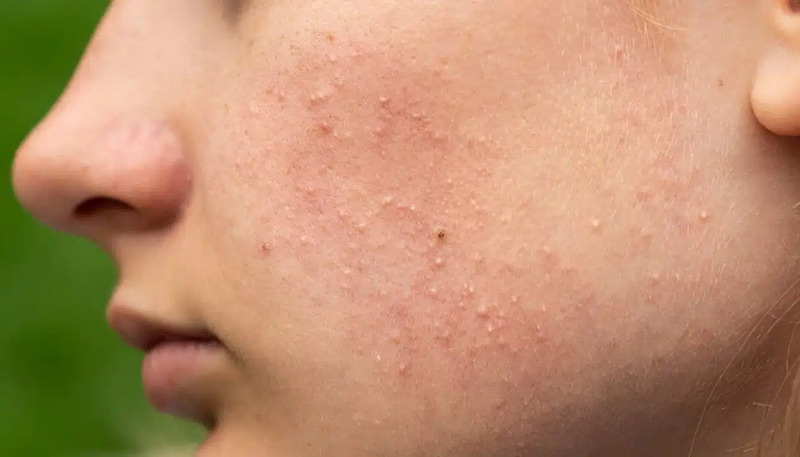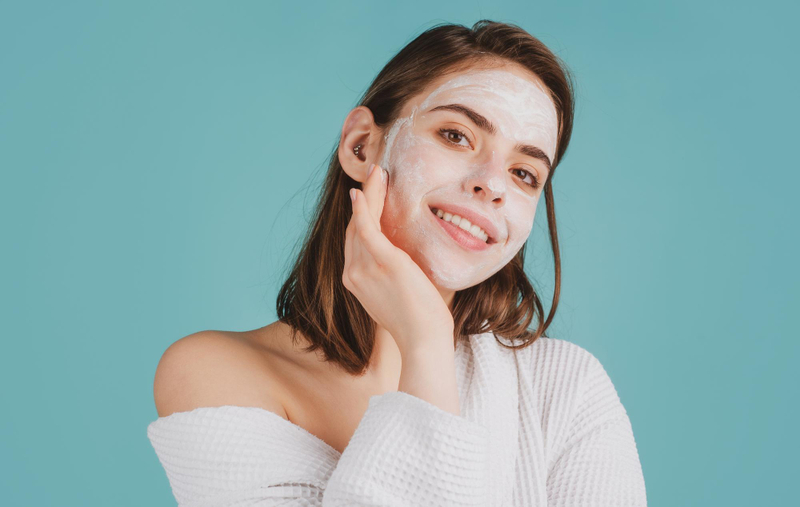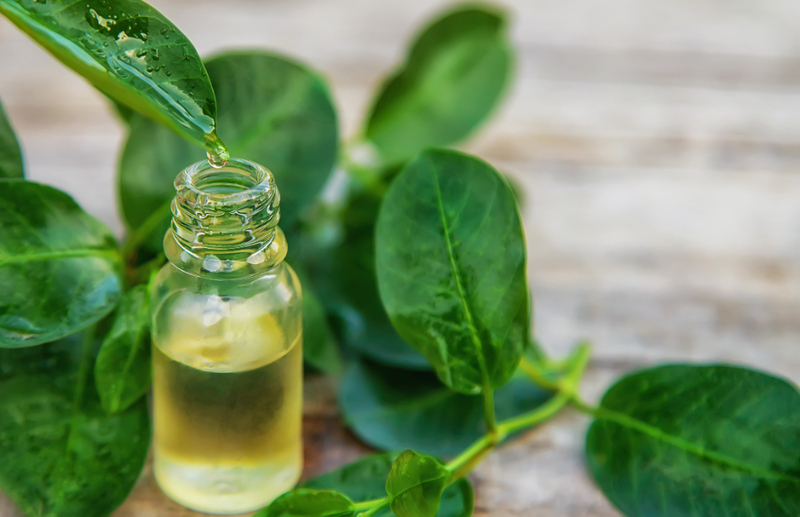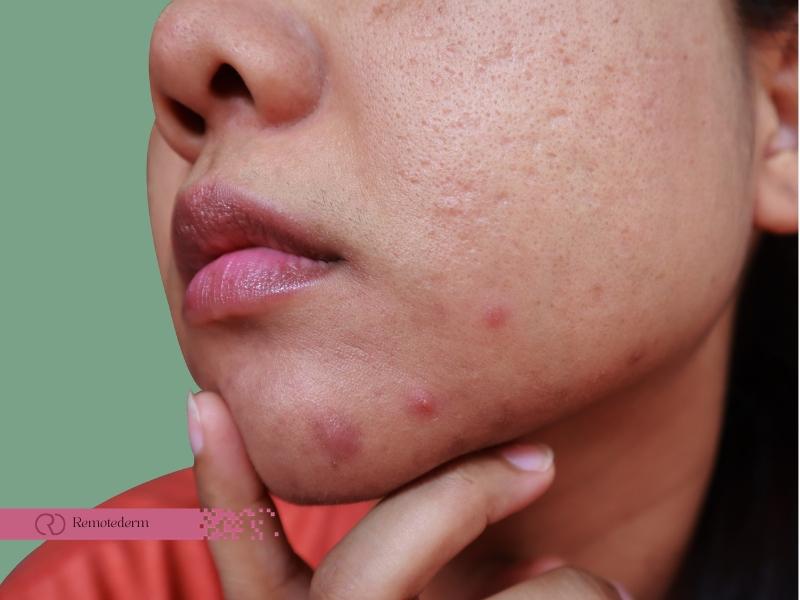Unveil the secrets to conquering fungal acne with our comprehensive guide, designed for Canadians! Learn about Malassezia folliculitis, often mistaken for traditional acne, and the key differences between bacterial and fungal acne. Explore targeted treatments, from antifungal topicals to a skincare routine crafted for fungal acne. Dive into lifestyle tips, including clothing choices and dietary adjustments, plus holistic remedies like tea tree oil and aloe vera. For persistent cases, access online dermatology services for expert care. Your path to clearer, healthier skin starts here—across Canada!
What is Fungal Acne?
Fungal acne, scientifically known as Malassezia folliculitis, represents a distinctive skin condition that diverges significantly from the more common bacterial acne. Understanding its nuances is vital for accurate diagnosis and effective treatment.

In essence, fungal acne arises when there is an overproliferation of the yeast Malassezia, which naturally resides on the skin. This excessive growth leads to inflammation of the hair follicles, resulting in the development of small bumps that can be easily mistaken for conventional acne.
Key Differentiators
It’s crucial to highlight the key differentiators between fungal and bacterial acne to ensure the implementation of the most appropriate treatment. Unlike traditional acne, which typically responds well to treatments like benzoyl peroxide or salicylic acid, these remedies may exacerbate fungal acne. Therefore, a precise approach is necessary, involving the use of antifungal agents such as ketoconazole to effectively address the underlying yeast overgrowth.
Fungal Acne Treatment Strategies
Fungal acne, caused by yeast overgrowth on the skin, requires a multifaceted treatment approach. Topical antifungal agents like ketoconazole and ciclopirox target the root cause, helping to control yeast overgrowth and relieve symptoms. For optimal results, regular use as prescribed by a dermatologist in Canada is essential.
Targeted Approaches
- Antifungal Topicals
To address fungal acne at its root, the incorporation of antifungal topicals is paramount. These specialized products play a pivotal role in controlling the overgrowth of Malassezia yeast, which is central to the development of fungal acne. Two particularly effective ingredients to look for are ketoconazole and pyrithione zinc. These compounds work synergistically to combat the yeast, alleviating inflammation and thwarting the occurrence of future breakouts. Regular application of these antifungal topicals can significantly contribute to the reduction of symptoms and promote a clearer complexion.
- Crafting a Proper Skincare Routine
A targeted skincare routine tailored to fungal acne is essential for effective management. Steering clear of oil-based products is crucial, as they can exacerbate the condition by providing a conducive environment for yeast growth. Instead, opt for fungal acne-safe alternatives. Incorporating gel-based cleansers into your routine helps cleanse the skin without adding excess oils that may fuel the acne. Choosing oil-free moisturizers ensures hydration without contributing to the problem. Additionally, selecting non-comedogenic sunscreens is pivotal to protecting the skin without clogging pores.

- Holistic Lifestyle Practices:
Beyond topical treatments, adopting holistic lifestyle practices can complement the management of fungal acne. Paying attention to factors such as diet and stress levels is essential. Some individuals find that reducing the intake of sugary and high-glycemic foods can help in controlling yeast overgrowth. Moreover, managing stress through practices like meditation or yoga can contribute to overall skin health. A holistic approach addresses the condition from multiple angles, promoting a more comprehensive and sustained improvement in fungal acne symptoms.
Lifestyle Adjustments
- Clothing Choices
Strategic clothing choices can play a pivotal role in minimizing the risk of exacerbating fungal acne. Opting for loose, breathable fabrics is key, as they allow the skin to breathe and don’t trap excess moisture. On the contrary, tight clothing creates an environment conducive to fungal overgrowth by retaining moisture. By selecting clothing that promotes ventilation and reduces humidity, individuals can contribute to creating an inhospitable environment for the proliferation of the yeast associated with fungal acne.
- Dietary Considerations
What we consume can impact the balance of microorganisms on our skin, including those contributing to fungal acne. To mitigate the risk of yeast overgrowth, consider minimizing sugar intake, as excess sugar can feed the growth of undesirable microorganisms. Additionally, incorporating probiotics into your diet can foster a healthy balance of skin-friendly bacteria. Probiotics, found in fermented foods like yogurt or in supplement form, promote the growth of beneficial microbes that can contribute to overall skin health.
- Stress Management
Stress is known to exacerbate various skin conditions, including fungal acne. Introducing stress-management techniques into your routine is not only beneficial for overall well-being but can also positively impact skin health. Practices such as yoga or meditation can be particularly effective in reducing stress levels. These techniques promote relaxation, help balance hormonal activity, and contribute to a more harmonious state within the body.
Seeking Professional Guidance
For persistent or severe cases of fungal acne, seeking advice from online acne dermatology services can be transformative. These platforms offer convenient access to expert advice, personalized treatment plans, and prescription medications, ensuring a comprehensive approach to managing fungal acne.
Gentle Home Remedies For Fungal Acne Treatment
Embarking on the journey to manage fungal acne prompts a closer look at natural remedies that can be seamlessly incorporated into your skincare routine, offering comfort and relief. Here’s a patient-friendly guide to these soothing solutions:
- Tea Tree Oil: Harness the natural power of tea tree oil, known for its antifungal properties. Dilute it gently and apply to affected areas for targeted relief, helping to ease inflammation and support healing.
- Aloe Vera Gel: Embrace the calming qualities of aloe vera gel, a gentle companion in your fight against fungal acne. Applying this gel can provide relief from redness and irritation, promoting a more comfortable complexion.
- Apple Cider Vinegar Toner: Consider integrating a diluted apple cider vinegar toner into your routine. This natural solution helps rebalance your skin’s pH, working in harmony with your fungal acne management strategy.
- Green Tea Compress: Experience the calming benefits of green tea. Brew a cup, let it cool, and then use a cotton ball to apply it to the affected areas. Green tea’s antioxidants may assist in reducing inflammation.

Final Thoughts
In summary, conquering fungal acne in Canada requires a nuanced understanding and personalized approach. Recognizing the differences from bacterial acne is key for making informed skincare and lifestyle choices. Emphasizing antifungal topicals, a tailored skincare routine, and holistic adjustments, including clothing choices and stress management, creates a comprehensive strategy. Seeking online dermatology guidance and incorporating soothing home remedies like tea tree oil and aloe vera offer well-rounded solutions. Achieving clearer skin is a holistic journey, combining informed choices, professional advice, and natural remedies.
FAQs
- How does fungal acne differ from bacterial acne?
Unlike bacterial acne, fungal acne is triggered by yeast overgrowth and requires a different approach to treatment, with common acne remedies potentially exacerbating the condition.
- Can diet impact fungal acne?
Yes, minimizing sugar intake and incorporating probiotics can help maintain a healthy balance of skin-friendly bacteria, contributing to overall skin health.
- When should I seek professional guidance for fungal acne?
For persistent or severe cases, seeking advice from online dermatology services is recommended, providing convenient access to expert advice, personalized treatment plans, and prescription medications.
